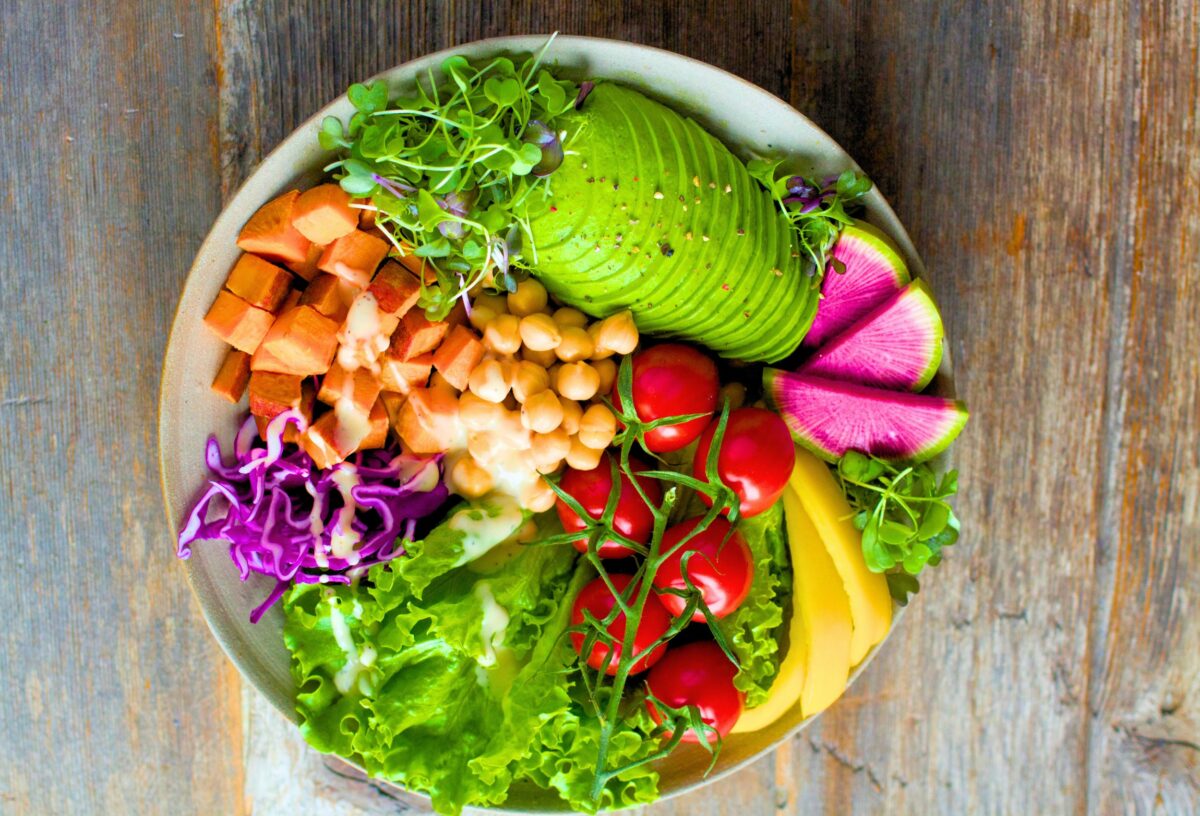How the food we consume plays a part in your skin
Our skin, often referred to as our body’s ‘outer layer’, serves as a protective barrier and can act as a mirror reflecting our overall health. This vast organ reacts to internal bodily changes, revealing more than just our age. It narrates tales of our diet, hydration levels, and even gut health. The adage, “You are what you eat,” resonates especially when discussing skin. By understanding this, we can become proactive caretakers of our complexion.
In recent years, there’s been a surge in research exploring the relationship between diet and health, particularly its direct impact on skin health.
The Science Behind Diet and Skin:
Nutrition does more than fuel our bodies. It nourishes every cell, right down to our skin cells. As we consume food, our body metabolises it into various nutrients. These nutrients circulate in our bloodstream, energising cells, promoting skin regeneration, repairing damage, and imparting a radiant glow.
Vital Nutrients for Radiant Skin:
Vitamins:
- Vitamin E: A potent antioxidant, it defends skin cells from harmful substances and UV damage.
- Vitamin C: Crucial for collagen synthesis, it ensures skin elasticity and protects against UV damage.
- Vitamin A: Essential for skin repair and maintenance, it aids in producing skin-building compounds.
Minerals:
- Zinc: Facilitates skin development, boosts immunity, and manages inflammation.
- Selenium: Renowned for its antioxidant properties, it defends against UV-induced cellular harm.
- Omega-3 Fatty Acids: These fats fortify the skin’s lipid barrier, which is vital for maintaining hydration.
- Water: Essential for preserving skin moisture and elasticity, water aids in toxin elimination, promoting clearer skin.
Feeding Our Skin from Within:
Nutrition is more than just an energy source; it’s the essence that rejuvenates every cell, including our skin. As we relish our meals, they’re transformed into a symphony of nutrients. These powerhouses traverse our bloodstream, energising cells and revitalising our skin’s vitality and lustre.
Nature’s Bounty for a Lustrous Complexion:
- Vitamin A: Crucial for cell production and repair. It also aids in preventing sun damage. It is found in foods like sweet potatoes, carrots, and kale.
- Vitamin C: A powerhouse antioxidant that helps in collagen production, making the skin firm and youthful. It is commonly found in citrus fruits, strawberries, bell peppers, and broccoli.
- Vitamin E: Acts as an antioxidant, protecting the skin from sun damage and helping with skin moisture. It’s in nuts, seeds, spinach, and broccoli.
- Vitamin K: Essential for wound healing and reducing dark circles under the eyes. It’s present in green leafy vegetables, broccoli, and Brussels sprouts.
- Vitamin B3 (Niacin): Helps to retain skin moisture, reduce redness, and improve the overall skin texture. Foods like chicken, tuna, and mushrooms are good sources.
- Zinc: Aids in skin development, inflammation control, and production of new cells. Foods rich in zinc include beans, nuts, whole grains, and dairy products.
- Selenium: An antioxidant that protects against UV damage and promotes skin elasticity. It is found in Brazil nuts, fish, and whole wheat bread.
- Iron: Essential for carrying oxygen to skin cells, giving it a healthy glow. Sources include red meat, poultry, beans, and spinach.
- Omega-3 Fatty Acids: Not exactly a vitamin or mineral, but it’s crucial for maintaining skin health by keeping the outer layer of the skin intact. Found in fatty fish like salmon, flaxseed, and walnuts.
- Silica: Helps boost collagen production and maintain skin elasticity. Commonly found in foods like bananas, green beans, and whole grains.
Steer Clear of These Culprits:
- Sugar-laden Treats: Excessive sugar can irritate the skin, leading to blemishes.
- Dairy: If you are prone to acne, some studies suggest cutting back on dairy as it might have a bearing on triggering breakouts.
- Processed Foods: They may be delicious but can diminish skin’s elasticity. The opportunity cost of eating processed foods is not really mentioned much. This means that if you are eating these foods, you are missing out on the opportunity to eat some of the beneficial foods above.
The Gut-Skin Axis:
Our digestive system’s health surprisingly influences our skin’s appearance. A balanced gut can produce clearer skin, while imbalances might induce breakouts. Consuming probiotics or foods rich in beneficial bacteria, like yoghurt, can support a healthy gut and, consequently, healthier skin.
Skin Conditions Influenced by Diet:
- Acne Breakouts: Possibly triggered by foods high in sugar, dairy, and processed ingredients.
- Dryness: Caused by a deficiency in essential fatty acids.
- Premature Aging: It is thought in some circles that high sugar intake can damage collagen and elastin, leading to premature wrinkles.
- Dullness: A lack of essential vitamins can diminish skin radiance.
- Redness and Flare-Ups: Spicy foods and alcohol might exacerbate rosacea.
- Puffiness: High salt diets can lead to water retention, especially around the eyes.
- Dark Circles: These may result from iron and vitamin K deficiencies.
- Eczema or Dermatitis Flare-Up: Triggered by specific food allergens or sensitivities.
- Yellowish Skin: Overconsumption of carotenoid-rich foods can cause a yellow skin hue.
- Sun Sensitivity: Excessive citrus fruit consumption can heighten sun sensitivity.
Practical Tips:
- Achieving radiant skin isn’t solely about adding or eliminating specific foods; it’s about balance.
- Balancing Your Diet: A varied diet ensures the intake of diverse essential nutrients.
- Staying Hydrated: Regularly drink water throughout the day.
- Caution with ‘Miracle’ Skin Foods: While some foods are hailed as skin saviours, always research and monitor your skin’s response to them.
- Dump the processed foods.

